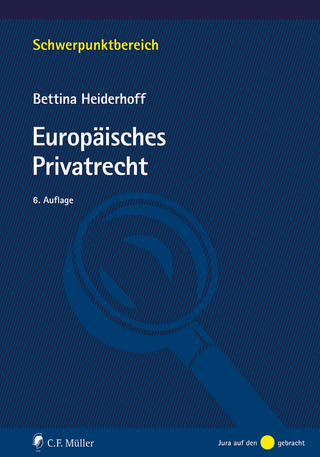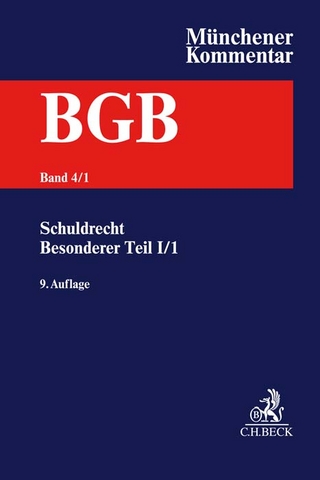
Recueil des cours, Collected Courses, Tome/Volume 371
Martinus Nijhoff (Verlag)
978-90-04-28936-9 (ISBN)
(Panthéon-Sorbonne);
Democracy and International Law, by H. Charlesworth, Professor at the Australian National University;
L’exception d’ordre public et la régularité substantielle internationale de la loi étrangère, par P. De Vareilles-Sommières, professeur à l’Université Paris-I (Panthéon-Sorbonne);
Significance of the History of the Law of Nations in Europe and East Asia, by M. Yanagihara, Professor at the University of Kyushu.
Paul Lagarde, né le 3 mars 1934 à Rennes, France. Agrégé des facultés de droit, droit privé (1961). Professeur successivement aux universités de Nancy (1961-1969), de Nanterre (1969-1971) et de Paris-I Panthéon-Sorbonne (1971-2001) ; Professeur émérite depuis octobre 2001. Président du Comité français de droit international privé (1987-1990). Membre du Groupe européen de droit international privé (Gedip) depuis sa fondation (1991). Membre de l’Institut de droit international (depuis 1995). Conseiller d’Etat en service extraordinaire (1997-2001). Secrétaire général de la Commission internationale de l’état civil (2000-2009). Rédacteur en chef, puis directeur de la Revue critique de droit international privé (1976-2012). Membre de la délégation française au groupe de travail ayant préparé de 1970 à 1980 la Convention de Rome du 19 juin 1980 sur la loi applicable aux obligations contractuelles, et corapporteur de cette convention. Membre des groupes d’experts de la Commission européenne sur le droit des successions et sur celui des régimes matrimoniaux. Membre de la délégation française à de nombreuses sessions de la Conférence de La Haye de droit international privé, rapporteur de la Convention du 19 octobre 1996 sur la protection des mineurs et de la Convention du 13 janvier 2000 sur la protection des adultes. Prix de la ville de La Haye pour le droit international (2011). Docteur honoris causa des facultés de droit de Fribourg-en-Brisgau, d’Athènes et de Wurtzbourg. Hilary Charlesworth, born on 28 February 1955 at Leuven. Distinguished Professor of International Law and Human Rights and Director of the Centre for International Governance and Justice in the Regulatory Institutions Network at the Australian National University in Canberra. Educated at the University of Melbourne and Harvard Law School and has held visiting appointments at United States and European universities. Held an Australian Research Council Federation Fellowship (2005-2010) and currently holds an Australian Research Council Laureate Fellowship. Has served as President of the Australian and New Zealand Society of International Law, Counsellor of the American Society of International Law and Executive Board member of the Asian Society of International Law. On the editorial boards of a number of international law journals and has been co-editor of the Australian Year Book of International Law and a member of the Board of Editors of the American Journal of International Law. Joint winner, with Christine Chinkin, of the American Society of International Law’s 2006 Goler T. Butcher Medal in recognition of “outstanding contributions to the development or effective realization of international human rights law”. Has worked with various non-governmental human rights organizations on ways to implement international human rights standards and was chair of the Australian Capital Territory government’s inquiry into a bill of rights, which led to the adoption of the Australian Capital Territory Human Rights Act, 2004. In 2011, elected as Associate Member of the Institut de droit international. Appointed judge ad hoc at the International Court of Justice (in 2011) for the Whaling in the Antarctic(Australia v. Japan) case. Pascal de Vareilles-Sommières, né à Lille (France), le 28 février 1961. Etudes de droit aux Universités Paris X Nanterre, Paris 1 Panthéon-Sorbonne et Paris II Panthéon-Assas. Visiting researcher, Harvard Law School, Etats-Unis d’Amérique (1986-1987). Docteur en droit de l’Université Paris 1 Panthéon-Sorbonne (1992). Agrégé de droit privé et sciences criminelles (1993). Depuis cette date, professeur des universités, successivement à l’Université de Reims Champagne-Ardenne, à l’Université Paris-Sud (Paris XI), depuis 2002, à l’Université Paris 1 Panthéon-Sorbonne. A été visiting professor à Harvard Law School, Etats-Unis d’Amérique (2001-2002), puis visiting fellow de University College, Oxford, ainsi que Directeur-adjoint de l’Institute of European and Comparative Law, Oxford University, Royaume Uni (2004-2006). Dirige depuis 2014 le Master de droit international privé et droit du commerce international à l’Ecole de droit de la Sorbonne (Université Paris 1). Vice-président du Comité français de droit international privé (2011-2014). Masaharu Yanagihara, born on 23 July 1952, in Toyama, Japan. LL.B., Department of Public Law, Faculty of Law, University of Tokyo (1975); LL.M., Graduate School of Law and Politics, University of Tokyo (1977); Ph.D., Graduate School of Law and Politics, University of Tokyo (1981). Associate Professor of International Law, Faculty of Economics, Yokohama National University (1981) ; Associate Professor of International Law, Faculty of Law, Kyushu University (1989) ; Professor of International Law, Faculty of Law, Kyushu University (since 1991) ; Visiting Professor, Open University of Japan (since 2013) ; Visiting Professor, LMU Munich, Germany (2000-2001); Visiting Professor, Catholic University of Leuven, Belgium (2002). Visiting Fellow, Goethe University Frankfurt, Max Planck Institute for European Legal History, Frankfurt am Main (1983-1984), and LMU Munich (1984-1985) as Alexander von Humboldt-Foundation Scholar ; Academic Visitor, Faculty of Law, Oxford University (1990). President, Japanese Society of International Law (2009-2012) ; Chairperson of the Board of Trustees, Japanese Society of International Law (since 2012) ; Council Member, Japan Branch, International Law Association (since 2014) ; President, Kyushu International Law Association (since 2007). Director, International Student Center, Kyushu University (2002-2008) ; Executive Vice-President, Kyushu University (2004-2008). Council Member, Yokatopia Foundation (2011-2014) ; Council Member, Fukuoka International Association (2012-2014) ; Council Member, Fukuoka City International Foundation (since 2014) ; Advisor, Adachi Memorial Foundation (since 2014). 26th Adachi Mineichiro Award (Adachi Memorial Foundation, 1992).
La méthode de la reconnaissance Est-elle l’avenir du droit international privé ?
Conférence inaugurale, session de droit international privé, 2014 par Paul Lagarde
Excerpt of table of contents:
Introduction
I. Le passé : l’émergence de la méthode de reconnaissance des situations
II. Le présent
III. L’avenir
Democracy and International Law by Hilary Charlesworth
Excerpt of table of contents:
Introduction
Chapter I. Approaches to democracy
Chapter II. International law and democracy
Chapter III. Defining democracy in international law
Chapter IV. Democracy-building as a response to conflict
Chapter V. Futures for democracy in international law
Bibliography.
L’exception d’ordre public et la régularité substantielle internationale de la loi étrangère par Pascal de Vareilles-Sommières
Excerpt of table of contents:
Introduction
Chapitre I. L’exception d’ordre public et la construction du paradigme de la régularité substantielle internationale.
Chapitre II. Le paradigme de la régularité substantielle internationale et la clarification de la nature de l’exception d’ordre public
Conclusion générale; Bibliographie sélective.
Significance of the History of the Law of Nations in Europe and East Asia by Masaharu Yanagihara
Excerpt of table of contents:
Introduction
Chapter I. Various types of “international law (law of nations)” and the “universality” of modern European international law
Chapter II. The “reception” of modern European international law in East Asia : discussions about the validity of international law
Chapter III. The “territory” of Japan in pre-modern and modern times
Chapter IV. International adjudication and Japan
Conclusion; Concluding remarks; Bibliography.
| Erscheint lt. Verlag | 17.3.2015 |
|---|---|
| Reihe/Serie | Collected Courses of The Hague Academy of International Law - Recueil des cours ; 371 |
| Sprache | englisch; französisch |
| Gewicht | 792 g |
| Themenwelt | Recht / Steuern ► EU / Internationales Recht |
| Recht / Steuern ► Privatrecht / Bürgerliches Recht ► Internationales Privatrecht | |
| ISBN-10 | 90-04-28936-4 / 9004289364 |
| ISBN-13 | 978-90-04-28936-9 / 9789004289369 |
| Zustand | Neuware |
| Haben Sie eine Frage zum Produkt? |
aus dem Bereich


